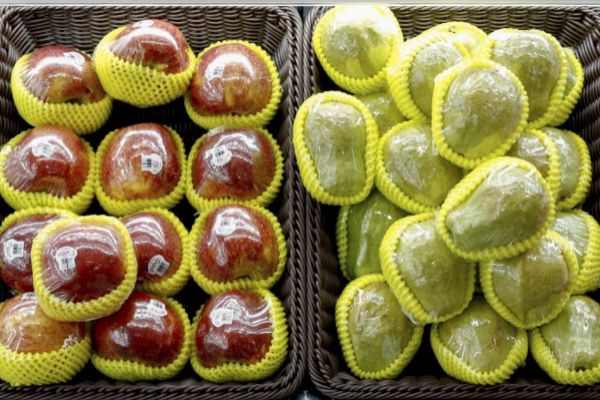One of the great challenges of the consumer sector is to reduce the amount of plastic used: the one we use to weigh fruit and vegetables (single-use bags and gloves), the one that protects food or contains products, shopping bags...
Ecommerce contributes to the problem. Spain is already the fourth country in online sales and this packaging generates twice as much environmental damage as the traditional one, although 80% of that impact can be reduced in the design phase with an adequate and sustainable model , according to the conclusions of a report of the association of companies and manufacturers of mass consumption (Aecoc).
73% of consumers would want less packaging on orders and 43% would pay more for more respectful materials, according to data from the study platform of the buyer Aecoc Shopperview.
Finding alternatives to this material is not so easy, but the industry is casting imagination. The Makro wholesale chain has launched an assortment of disposable products for use in hospitality.
They are covered and glasses made with sugar cane, wheat pulp, palm leaf, corn pulp, as well as paper drinking straws and wooden coffee removers. Sugarcane, which was considered unusable, is also more resistant than plastic and withstands higher temperatures.
Cream on paper
Cosmetics is another sector that requires more packaging. L'Oréal and Albéa - a company specialized in sustainable packaging solutions in beauty - are developing the first cosmetic tube made from cardboard, where plastic is replaced by a material similar to certified biobased paper.
In beverages, Coca-Cola has manufactured the first recycled plastic bottle of marine litter and Procter & Gamble, the owner group of Pantene or Fairy, has as a challenge that 300 million bottles of its European home care brands become plastic 100 % or partially recycled every year.
As a curious experiment, the Egg Institute has already started a project years ago that uses the egg yolk to replace the thin plastic that covers the washing machine or dishwasher tablets.
Hotel without plastic
In tourism, hotel chains are changing the single-dose containers of their bathroom items. Meliá has replaced them with 300-milliliter eco format dispensers, which contain 10 times more product and use much less plastic.
They will reduce more than 45,000 kilos of this material in one year. The rest of the bathroom articles (brushes, comb, etc.) have also been replaced by ecological packs.
In supermarkets, most chains have eliminated plastic bags in the cash lines. Lidl, Mercadona, Carrefour ... Eroski has recycled plastics in its bakery sections. The challenge now is to give a second life to almost 8,000 million difficult-to-manage waste, such as coffee capsules, deodorant tubes and plastic gloves, to create other materials.
Ecoembes and Aecoc have launched a series of recommendations on how they consider the immediate future packaging to be. The packages must be recyclable, inviolable (that cannot be handled), with ease of return (that if you return the product you can put it in the original packaging in a simple way), that it is self-supporting, versatile (adapts to the characteristics of the product ) and be resistant: withstand falls, bumps ...
“The objective is to develop a design in electronic commerce that uses the least material possible, guarantees product protection and reduces the environmental and economic impact on the distribution chain,” says Jesús Losada, CEO of Ihobe, society Environmental management public of the Basque Government, which also participates in this project.
Sustainable packages "should be easy to open, not generate double packages or packaging, avoid damage to products and, above all, use recyclable materials to a greater extent."
According to the criteria of The Trust Project
Know more
